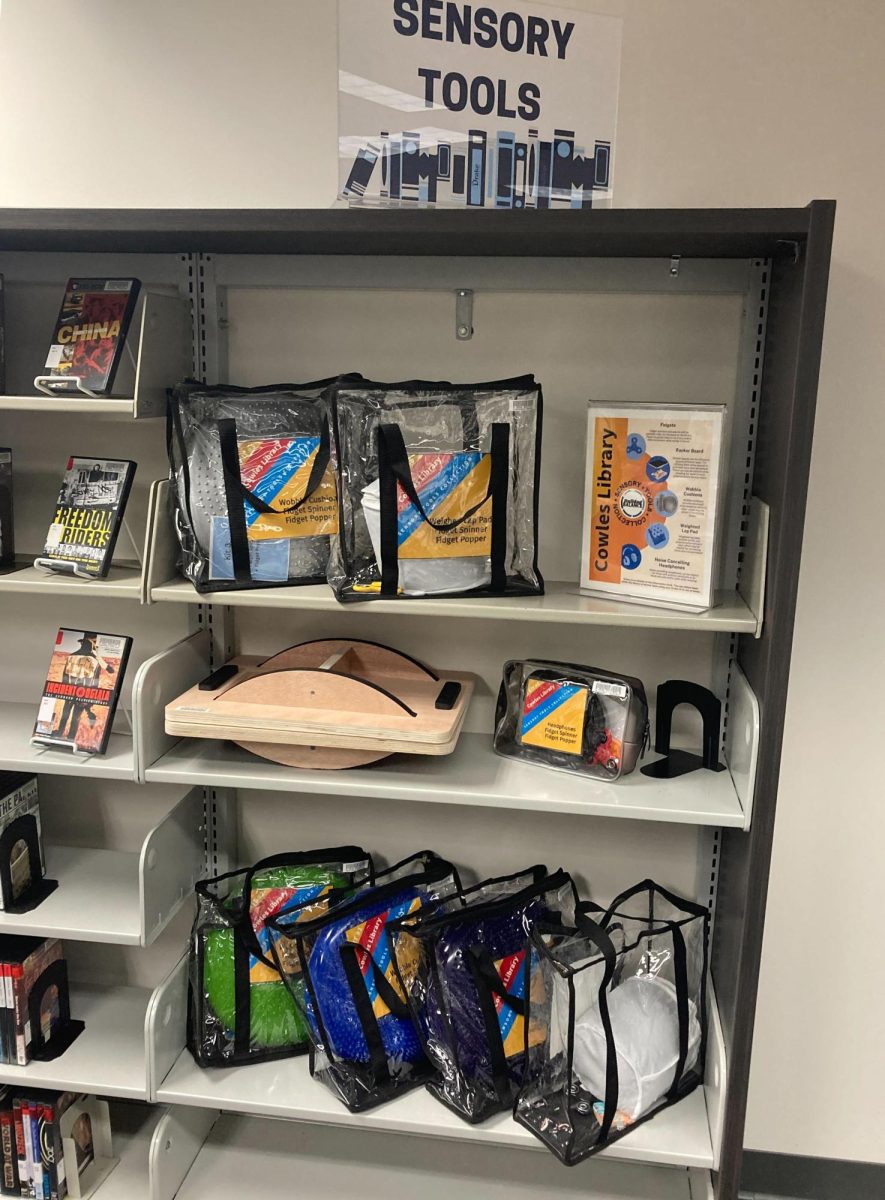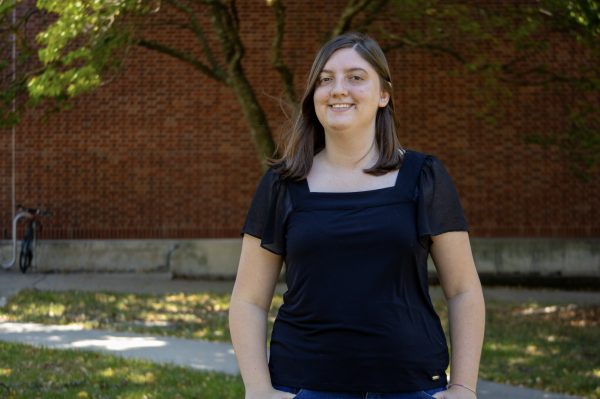On the shelves of Cowles Library’s first floor, near the DVDs and records, sit items with no pages and no words, intended not to be studied but to improve the student studying experience. Eight sensory tool kits — with materials ranging from wobble cushions to fidget spinners to weighted lap pads — and two balance boards are ready for check out.
In her final semester pursuing an Occupational Therapy Doctorate, Sarah Hulstein began her OTD capstone — a self-paced, self-created project. Hulstein spent the semester thinking of a specific topic to address, researching it and thinking of ways to implement the project. Due to an interest in pediatric occupational therapy, Hulstein chose sensory tools and strategies in schools.
Throughout her clinical rotations, Hulstein had seen multiple instances of schools not understanding students’ sensory needs. To avoid this problem, one branch of her project was implementing the sensory tools checkout system in the library.
“On the college campus, it’s a little more on the student to find those sensory strategies, and sometimes the environment of the classroom or study spaces on campus aren’t set up to support students in that way,” Hulstein said. “Having the sensory room or having the tools that they can check out from the library just creates more access for those kinds of tools so that students can use them.”
Hulstein created a survey about sensory preferences, which she distributed throughout the library. Student responses impacted the composition of the kits.
“One thing that I found that was a recurring theme with the answers to those questions was that a lot of students have a hard time sitting still when they are studying or working in class. A lot of students prefer to have a quiet study space,” Hulstein said. “So a couple of the tools that are in those boxes are noise canceling headphones. There’s wobble boards that you can stand on and it gives you more movement.”
The materials made their Cowles debut in April, shortly before Hulstein’s graduation, but she said it is “cool” that students are still able to use her project for studying.
Access and Success provided funding for Hulstein’s project. Laura Shell, strategic director for student success and retention, works with Access and Success on initiatives such as this.
Shell said that it can be a big risk for students — who all have different needs — to try new sensory tools.
“Having these resources available for checkout is great so that people can try them,” Shell said. “But also if they’re studying here in the library or if they’re feeling a little overwhelmed and just need a little extra support, this is a great, easy, accessible way to get those things here on campus.”
Shell added that students are often coming from education systems with different or limited available support.
“Coming to college and seeing that it’s not too late to try something new as a learner is something that I think is really valuable,” Shell said.
Joanna Stankiewicz, head of access services at Cowles Library, handled the implementation of the kits within the library’s existing non-traditional materials system, which includes DVDs, records and more. The kits have the same checkout procedure as these materials, with one week checkout times that automatically renew until somebody else requests the item or the term ends. The sensory tools also fall under the non-traditional materials sanitization process, where librarians inspect the tools for uncleanliness and use disinfectant when necessary.
Stankiewicz said she has already seen student curiosity about the materials.
“I’ve noticed that some students like to use the wobble boards when they’re standing and typing at some of the standing desks,” Stankiewicz said.
Stankiewicz noted that having the sensory tools available to students fits into the library’s role as a “hub” on campus.
“We are accessible to everyone,” Stankiewicz said. “We are open to the entire campus and even guests. As librarians, our mission is to provide accessibility to resources.”
Stankiewicz and Shell added that they are always open to suggestions from students, whether that be by visiting the Access and Success offices in the basement of the library, filling out the Book & Media Request Form on the library’s website or by emailing Shell.








